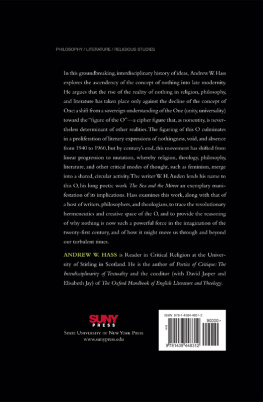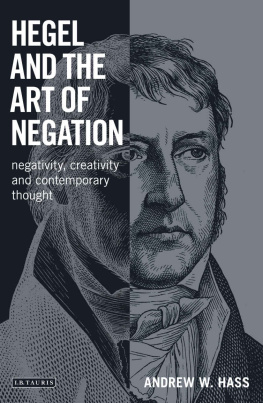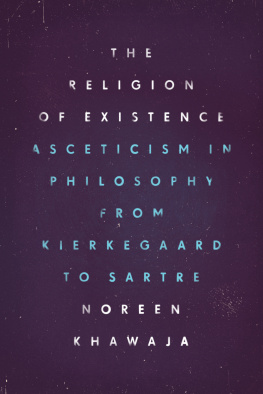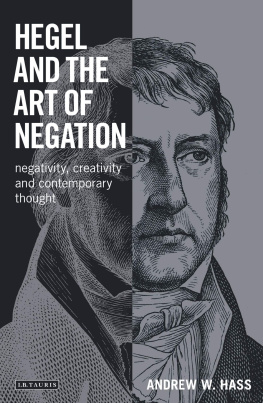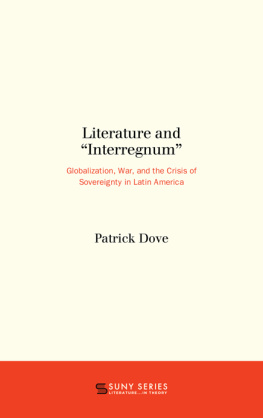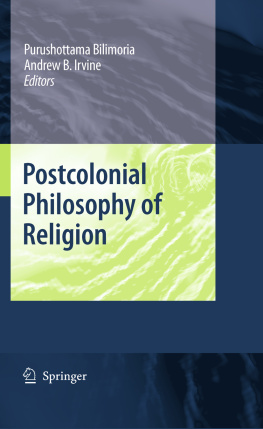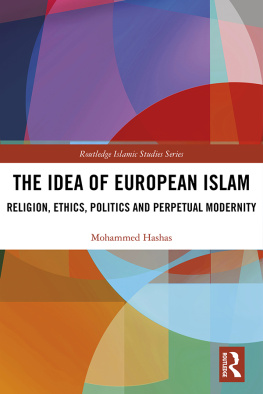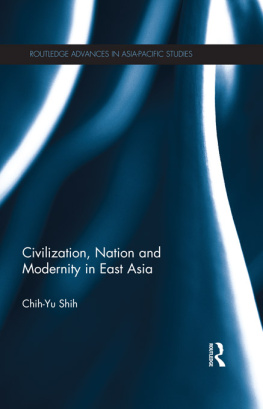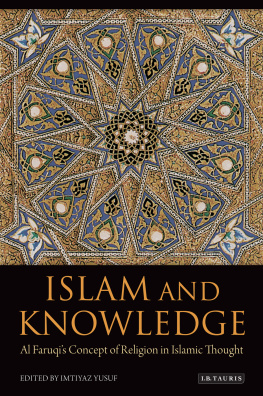AUDENS O
The Loss of Ones Sovereignty in the Making of Nothing
A NDREW W. H ASS
S TATE U NIVESITY OF N EW Y ORK P RESS
Published by
S TATE U NIVERSITY OF N EW Y ORK P RESS , A LBANY
2013 State University of New York
All rights reserved
Printed in the United States of America
No part of this book may be used or reproduced in any manner whatsoever without written permission. No part of this book may be stored in a retrieval system or transmitted in any form or by any means including electronic, electrostatic, magnetic tape, mechanical, photocopying, recording, or otherwise without the prior permission in writing of the publisher.
For information, contact
State University of New York Press, Albany, NY
www.sunypress.edu
Production, Laurie Searl
Marketing, Anne M. Valentine
Library of Congress Cataloging-in-Publication Data
Hass, Andrew.
Audens O : the loss of ones sovereignty in the making of nothing / Andrew W. Hass.
pages cm
Includes bibliographical references and index.
ISBN 978-1-4384-4831-2 (hardcover : alk. paper)
1. Nothing (Philosophy) in literature. 2. HermeneuticsPhilosophy. 3. Postmodernism. 4. Nothing (Philosophy) I. Title.
PN56.N69H37 2013
809'.9338dc23
2012045469
10 9 8 7 6 5 4 3 2 1
CONTENTS
CHAPTER 0
INTRODUCTION
PART ONE
FROM RELIGION AND PHILOSOPHY TO ARTIFICE
CHAPTER ONE
THE SOVEREIGNTY OF ONE
CHAPTER TWO
THE REVOLUTIONS OF O
PART TWO
POESIS FIGURETHE MAKING OF O
CHAPTER THREE
SHAKESPEARES EYE OF THE STORM
CHAPTER FOUR
REFLECTIONS OF AUDEN
CHAPTER FIVE
THE EMPTY MIDDLE
PART III
LOOKING AFTER O
CHAPTER SIX
THE REMAKING OF PHILOSOPHY AND RELIGION
CHAPTER SEVEN
THE FUTURE OF O?
ACKNOWLEDGMENTS

A book of this ambition and breadth does not come togetherif it comes together at allwithout the thoughts, input, and support of a great number of people. Many names are now lost to the process of thinking on so many different levels and over such a length of time. But some continue to stand out, with feedback that had direct impact on the content of the text: Tom Altizer, Pamela Sue Anderson, Andrew Cutrofello, Bettina Bergo, Ward Blanton, Val Cunningham, David Jasper, Werner Jeanrond, David Klemm, Ben Morgan, Dan Price, Robert Sherwood, and Heather Walton. Of course the more formative influence of these and others could never be captured, though my gratitude for such influence is as great if not greater. I am also deeply indebted to the anonymous reviewers of this manuscript, who drew my attention to the pockmarks and seams still present in the argument of the final draft. I also owe much thanks to the tremendous support of my colleagues at the University of Stirling, especially those in Critical ReligionTim Fitzgerald, Alison Jasper, Michael Marten, Richard Robertswho keep the inspiration for such interdisciplinary interrogations, amid the intensities of daily academic life, very much alive. But I owe my greatest gratitude to the love and support of my partner, Jennifer Davidson, whose indefatigable belief, even during the most arduous of times, and when our own children entered our lives, sustained me beyond my own belief, and in ways I cannot say. Thank you.
Finally, I am grateful for the permission granted to use the following previously published material:
The Sea and the Mirror, copyright 1944 and renewed 1972 by W.H. Auden, One Circumlocution, copyright 1976 by Edward Mendelson, William Meredith and Monroe K. Spears, Executors of the Estate of W.H. Auden., from COLLECTED POEMS OF W. H. AUDEN by W.H. Auden. Used by permission of Random House, Inc. Any third party use of this material, outside of this publication, is prohibited. Interested parties must apply directly to Random House, Inc. for permission.
On circumlocution and The Sea and the Mirror. Copyright 1947 and 1951 by W.H. Auden, renewed. Reprinted by permission of Curtis Brown, Ltd.
Excerpts from Endgame, English translation copyright 1957 by the Estate of Samuel Beckett. Used by permission of Grove/Atlantic, Inc. and of Faber and Faber Ltd.
Excerpts from Texts for Nothing, copyright 1995 by the Estate of Samuel Beckett. Used by permission of Grove/Atlantic, Inc. and of Faber and Faber Ltd.
Excerpts from The Unnamable, English translation copyright 1958 by the Estate of Samuel Beckett. Used by permission of Grove/Atlantic, Inc. and of Faber and Faber Ltd.
EPICYCLE
NOTHING WILL COME OF NOTHING
Parmenides, the Eleatic philosopher predating Socrates, handed this famous circularity to the West. From nothing comes nothing. Or as Parmenides said more tautologically, nothing is not. This seems patently clear, at least in terms of basic logic. But the idea keeps returning, keeps haunting us, as if there remains something unresolved in it, something more than pure tautology. Philosophers and theologians, ever since Parmenides, have continued to grapple with it, whether Aristotle in his Physics, or the Scholastics in its Latin form (nihil ex nihil fit), or Leibnizs altered version, Nothing is without reason(nihil est sine ratione). Most people today, however, know the saying from a source other than philosophy: from the injudicious Lear, who says to his youngest and favored daughter Cordelia in the opening scene of Shakespeares tragedy: Nothing will come of nothing. Speak again. In response to her fathers solicitations, Cordelia has said nothing. Literally, Nothing. Nothing?, Lear asks dumbfoundedly. Nothing. But nothing can possibly come from nothing, says Lear, summoning the many great minds before him. Or, might Lear be overlooking something?
Aristotle himself wondered this, and agreed with the statement only after some qualification. Few remember the philosophers qualifications. But many remember the plight of Lear. For Lear is himself reduced to nothing. And only then does he see that Cordelias nothing was in fact the fullest, the most meaningful response of all the daughters. According to the playwright, then, something might indeed come of nothing. Or nothing is a place where things of a deep nature might come to be known.
By tending to concepts, the philosopher and theologian focus on the substantive nature of the subject and its predicate, in this case nothing. By attending to drama, the playwright focuses on the action of the verb, will come. Substantively, nothing is nothing. Actively, something will come, even if it is nothing. Parmenides says nothing is not possible, so let us not speak about it. Shakespeare says nothing will come, even from nothing, so let us speak again. And so the nothing of Cordelia speaks again and again throughout the play, until it ripens in its nothing as something. This coming to ripeness is what the following pages will explore.
The primary question in this movement, this ripening, is about sovereignty. Who has the better claim, the higher authority, on nothing? Conceptually, and traditionally, it has been the philosopher/theologian. And heit has almost exclusively been a

